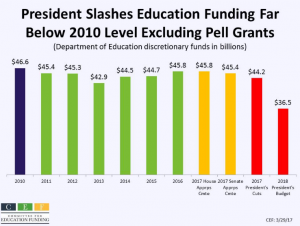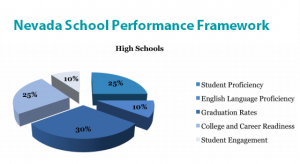With the House Education and the Workforce Committee slated to mark up H.R. 2353, the Strengthening Career and Technical Education for the 21st Century Act (the bill that would reauthorize the Carl D. Perkins Career and Technical Education Act of 2006 (Perkins)), this week, Career Technical Education (CTE) has been getting a lot of airtime in Washington, D.C. Updates about CTE events, bills, and support in Congress are below.
Watch the Action Live: H.R. 2353 Mark Up Tomorrow
On Wednesday, May 17 at 10 a.m. Eastern Time, the House Education and the Workforce Committee will mark up H.R. 2353. At this time, members of the Committee will consider and discuss amendments to the legislation. You can watch the mark up tomorrow live here and follow Advance CTE on Twitter at @CTEWorks for up-to-the-minute updates. Advance CTE sent a letter to the Committee outlining our support of many provisions included in H.R. 2353 and our main outstanding concern around how the bill defines a secondary CTE concentrator.
Chairwoman Foxx Discusses CTE at AEI
On May 16, Chairwoman Virginia Foxx of the House Education and Workforce Committee delivered remarks, engaged in a brief discussion with Andy Smarick, the Morgridge Fellow in education at the American Enterprise Institute (AEI), and answered questions from the audience about CTE. Chairwoman Foxx encouraged the audience to be mindful of the language we use to describe CTE, emphasized the strong academic outcomes of CTE students, and reinforced the need to share success stories about programs that prepare students for the workforce (and you can find Advance CTE’s resources to promote CTE programs here). In addition, she highlighted how H.R. 2353 provides opportunities for state and local CTE leaders to engage and partner with business and industry. Highlights and a recording of the event can be found online here.
Senate “Dear Colleague” Letter Garners 34 Signatures in Support of Perkins
On May 9, a “Dear Colleague Letter” was sent to the chair and ranking member of the Senate Labor, Health and Human Services, and Education Appropriations Subcommittee to request an increase in the investment in Perkins State Grants to $1.3 billion (it is currently funded at $1.17 billion) in the Fiscal Year (FY) 2018 Appropriations Bill. The letter garnered 34 signatures from Senators across 25 states. Please check to see if your Senators signed the letter here and if so, send a thank you note! Advance CTE will also be thanking these Senators and Senator Richard Blumenthal (D-CT) for leading the charge to collect signatures!
College Transparency Act Introduced
Senators Orrin Hatch (R-UT), Elizabeth Warren (D-MA), Bill Cassidy (R-LA), and Sheldon Whitehouse (D-RI) introduced the College Transparency Act on May 15. The bill would “establish a secure, privacy-protected postsecondary student data system at the National Center for Education Statistics (NCES). Colleges would report data to this new data system in lieu of the current, burdensome reporting mechanisms, and NCES would be responsible for presenting the information in a user-friendly manner for students and the public, while safeguarding student privacy” according to this one-pager released by the bill’s sponsors.
Kathryn Zekus, Senior Associate, Federal Policy


 The Committee for Education Funding has updated its funding charts, including the one to the right demonstrating how the President’s FY17 and FY18 proposals (excluding Pell Grants) compare to 2010 levels. Find charts and additional federal budget resources
The Committee for Education Funding has updated its funding charts, including the one to the right demonstrating how the President’s FY17 and FY18 proposals (excluding Pell Grants) compare to 2010 levels. Find charts and additional federal budget resources  Eighteen states
Eighteen states  Join us May 2 – 4, 2017 in Washington, D.C. four our annual Spring Meeting bringing together Career Technical Education (CTE) leaders from across the country for two and a half days of panels, breakout sessions and networking opportunities. This year’s meeting will feature over 25 leaders in CTE tackling issues from Perkins reauthorization to expanding access to CTE in rural communities.
Join us May 2 – 4, 2017 in Washington, D.C. four our annual Spring Meeting bringing together Career Technical Education (CTE) leaders from across the country for two and a half days of panels, breakout sessions and networking opportunities. This year’s meeting will feature over 25 leaders in CTE tackling issues from Perkins reauthorization to expanding access to CTE in rural communities.